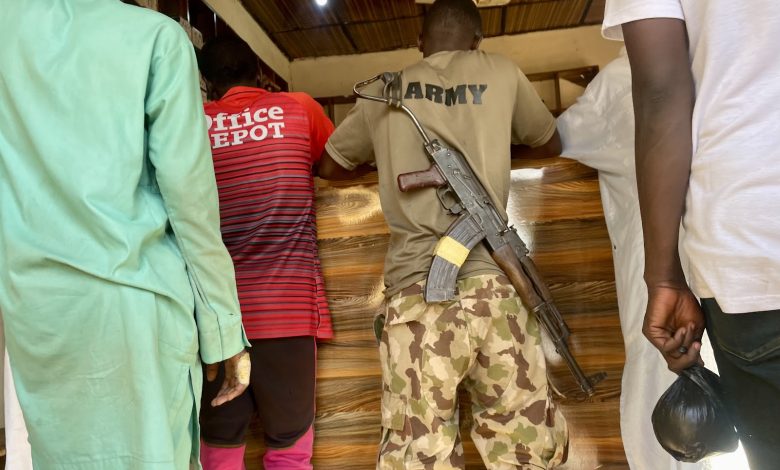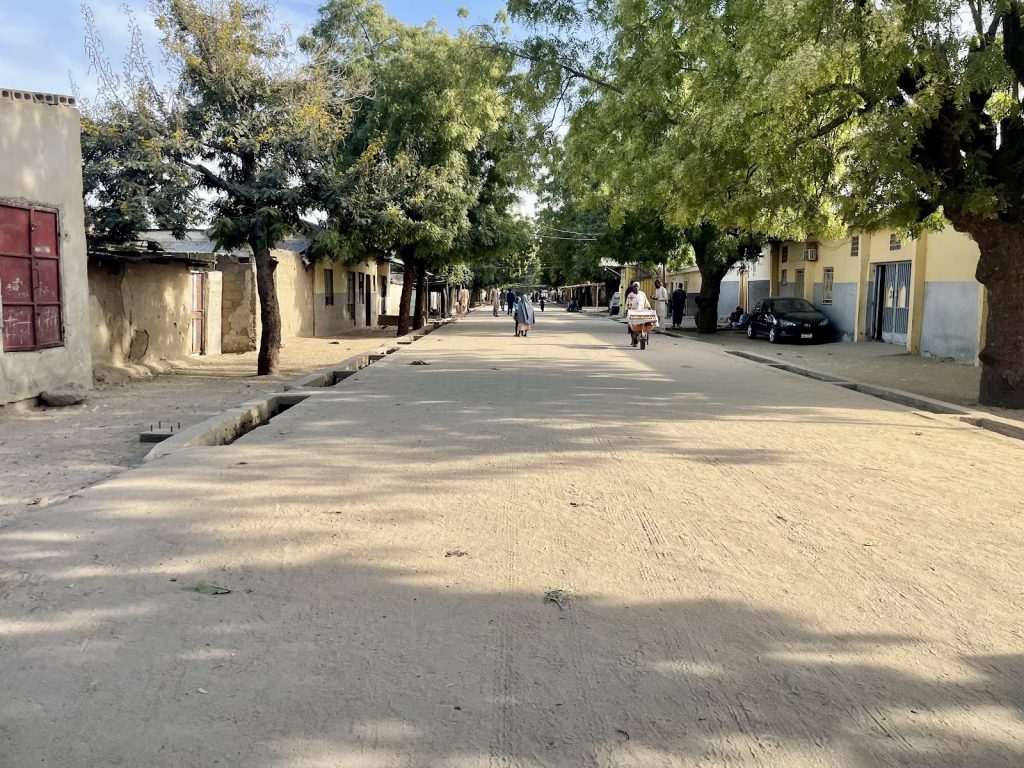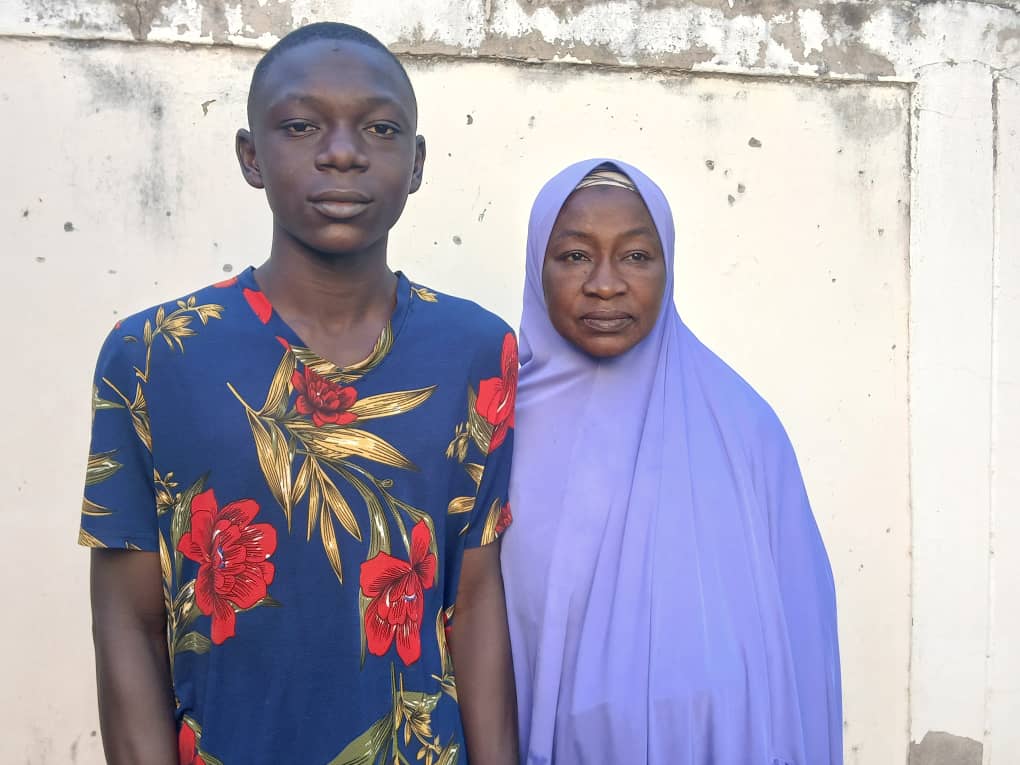Scars of War (I): Children Caught in Nigeria’s Boko Haram Conflict Battle Trauma
Children caught in Boko Haram’s insurgency bear scars of violence, displacement, and deep trauma. Their stories reveal a generation torn between fear, confusion, and survival, navigating a world where the lines between right and wrong blur, leaving lasting impacts on their futures.

In 2009, 15-year-old Abba Kyari had just finished his final exams for junior secondary school and travelled to Mafoni Ward in Maiduguri, the capital of Borno State, northeastern Nigeria, to spend the holidays with his grandfather. But his break was violently disrupted when Boko Haram launched attacks on police stations and government buildings in the community on July 26, 2009, marking the start of its insurgency in Nigeria.
Just a few metres from his grandfather’s home stood Dandal Police Station and Lamisu Police Station—both among the many targets of Boko Haram’s wrath. The group had long viewed police stations across the state as symbols of state authority to be dismantled. As gunfire and explosions erupted, the violence felt close, as if unfolding right at his doorstep.
“We were told to pray for safety, and I clung to my rosary for the first two days,” Kyari recounted. “After that, I lost hope. I was too scared to pray. I thought it was doomsday. I was just waiting for my time to come because I believed I was going to die.”

On the third day, Kyari saw a boy, barely older than himself, wearing a military uniform, gripping a wheel spanner, and chanting ‘Allahu Akbar.’ The adults on the street hailed the boy, praying for his safety. He would later learn that the boy was a Boko Haram member.
This moment left Kyari deeply confused. Until then, he believed Boko Haram was the enemy.
“I was torn about who to support: the police or Boko Haram,” Kyari told HumAngle.
A week later, the gunfire ceased, leaving bullet-riddled walls. “Whenever I see such walls, I think about who fired those bullets and why. But there’s never an answer to the unending questions in my mind,” he said.
“The moment Boko Haram’s leader, Mohammed Yusuf, was arrested and killed, everyone knew which side they had to choose. But deep down, many communities were not happy. I heard my neighbour say that Yusuf’s face was still smiling after death. ‘Surely, this man is God-fearing,’ he said,” Kyari recalled.
After five days of clashes, more than 800 people lay dead, including at least 30 police officers.
A son’s grief
For Abdulaziz Mohammad, he grew up knowing little about his father’s death. His mother avoided the topic, shielding him from deeper pain. He was only a year old when his father was killed.

“All my mother had after my father died was 40 naira and children to feed,” Abdulaziz recalled. Now 17, Abdulaziz carries this loss daily. “I grew up hating Kanuri people because my mother told us, ‘It was Boko Haram and the Kanuri people who killed your father,’” Abdulaziz admitted.
For him, the trauma reshaped his worldview. His deep-seated anger towards Kanuri people reflects what clinical psychologist Longkat Enock Tetok calls ‘trauma-induced bias,’ where a child internalises hatred as a form of self-protection. Without intervention, these triggers can continue to haunt the mind, hindering emotional development.
One day, Abdulaziz stumbled upon an envelope among his mother’s belongings. Inside was a photograph—the first image of his father he had ever seen. The moment he opened the envelope, the sight burned into his memory.
“I saw my father slaughtered and covered in mud and blood. I just started crying,” he said. “My younger brother heard my cries and came, and he started crying at the image as well. Nobody told us this was our father, but we felt it was him, which was the evidence my mother had talked about for years. We didn’t want anyone to see the horror, so my brother and I burnt the photo and never talked about it.”
“Anytime I see blood, it reminds me of Boko Haram,” Abdulaziz said.
Abdulaziz and his brother swore to avenge their father after they saw the photo. “When we realised we couldn’t go to the bush, I made up my mind that I am joining the military,” he recounted. However, as time passed, his thoughts on the terrorist group became less frequent. “I don’t think about them as much anymore, and my mother doesn’t talk about it either,” he added.
Of distrust and injustice
However, he remains sceptical of reintegration, believing some terrorist deserters still hold extremist views. “I understand that people can change, but it’s hard to trust when the memories of their actions are so fresh,” he added.
Abdulaziz’s anger flared when the rehabilitation and reintegration programme began in Borno. “I felt like bombing the camp, but I had no choice,” he admitted.
This distrust is common among conflict survivors. Tetok says, “Forgiveness is not just a moral decision; it requires psychological processing. When people feel justice has not been served, their minds resist reconciliation.”
For Abdulaziz, the road to genuine peace requires justice for victims and a transparent process to ensure accountability.
‘Why did they remain silent?’
In 2010, a year after Boko Haram’s leader, Yusuf, was killed, his deputy, Abubakar Shekau, appeared in a video declaring himself the group’s new leader. He vowed to avenge Yusuf’s death and that of their fallen members. What followed was a wave of calculated and brutal attacks across Maiduguri—mosques, churches, marketplaces, motor parks, and security posts all became targets.
The group also turned its fury on those who opposed them. Individuals who had assisted the military and police in tracking down Boko Haram members during the July 26 conflict were hunted down. Community leaders who spoke out were silenced. Religious figures who openly denounced the group’s ideology were assassinated.
Kyari, who was just a child when he first encountered Boko Haram, is now an adult. He understands that the group had been active long before the 2009 uprising. The realisation fills him with a deep sense of betrayal. “The government knew they existed long before then. Why did they remain silent?”
He recounted a moment from 2005 before the insurgency gained widespread attention—one of his friends had suddenly stopped attending school. His uncle had joined Boko Haram and taken him along.
The long-term effects of such exposure to violence are profound. Tetok explains that children who witness extreme violence often develop symptoms of post-traumatic stress disorder (PTSD), including nightmares, emotional detachment, and heightened aggression. “When children experience trauma repeatedly, their brains adapt to a state of constant fear, making it difficult for them to feel safe even in peaceful environments,” he said.
Since the 2009 attacks, Kyari said, “I have never had a single day without fear.”
‘Children are empty slates’
In 2014, when Boko Haram attacked Giwa Barracks in Maiduguri, just a few kilometres from Kyari’s home, his fears took on a new dimension. To him, if Boko Haram could enter the city, attack a military facility, take what they wanted, and free their members from prison, it meant they could strike anywhere, at any time. But that event also hardened him. He began to grasp the devastating impact of conflict—not just on communities but on families, who could abandon their own in moments of survival.
“Children are empty slates,” Tetok said. “Whatever you write on them is what they are becoming; children in conflict-affected areas need intervention for them to recover from the violence they have witnessed.”
Kyari recalled the chaos at the 303 Housing Estate when Boko Haram’s shelling intensified, and Giwa Barracks teetered on the brink of capture. His family was packed in a frenzy. As the eldest, he dashed to open the gate for their car, only to freeze in disbelief as his father, mother, and siblings sped off, leaving him clinging to the gate.
In the chaos, both animals and humans were confused. Kyari ran alongside a stern community dog, usually known for barking at everyone. That day, however, the dog was terrified, its tail tucked under its belly. The scene was pure pandemonium. As he ran, he saw others rushing in the opposite direction, adding to the disorder.
After hours, the attack by Boko Haram subsided, with their members released and the barracks left in ruins. As evening approached, the tension began to ease. The random jet strikes had ceased, but it has left a whole community traumatised.
“When my family returned the next day, they claimed they forgot about me,” Kyari recounted. “But I wasn’t worried because I no longer trust anyone, not even my family. That incident made me inhumane. I can feel it.”
Unlike many trauma survivors who turn to substance abuse, Kyari coped by detaching from people, even considering joining Boko Haram at 16.
“I saw it as a form of advocating for a better life. I wanted to use it to fight corruption. On other days, I supported the military. That inner conflict shaped who I am a lot. I don’t know what or why, but I think I don’t care about people’s feelings, and I am not scared of death,” he added.
Kyari is now 31 years old.
More than 40 million children aged below 15 years fall victim to violence each year, according to the World Health Organization. The resulting trauma varies depending on the severity of the violence and the child’s personal experience and can, in the long run, have both medical and psychosocial consequences.
Beyond the direct violence, many have been separated from their families or forced to become child soldiers, taking on roles ranging from combatants to couriers. Children like Kyari are forced to navigate a chaotic world where the lines between right and wrong blur, leaving them with lasting distrust and detachment
Tetok highlighted how recurring fear and exposure to violence can desensitise children, affecting their ability to form healthy emotional connections.
“Kyari’s loss of trust, even in his own family, is a survival mechanism. In an environment where betrayal and abandonment feel inevitable, the mind protects itself. This detachment can later manifest as difficulties with empathy and social interaction,” he said.
Tetok stressed the need for functional youth centres and child-friendly spaces with engaging activities to support young people affected by violence.
The narrative highlights the harrowing impacts of the Boko Haram insurgency in Nigeria, focusing on two individuals' experiences.
Abba Kyari, who was 15 during the initial outbreak in 2009, witnessed violence firsthand, leading to confusion over whom to trust, leaving him with lasting distrust and thoughts of aligning with opposing sides.
Abdulaziz Mohammad carries the trauma of losing his father to the insurgency as a child, fostering anger towards the Kanuri people and skepticism towards the rehabilitation of terrorists.
Both stories exemplify the profound psychological effects of witnessing violence, including PTSD and emotional detachment, as well as the need for psychological healing and reconciliation for affected individuals. The accounts underscore the struggles with trauma-induced bias, the challenges of forgiveness without perceived justice, and the necessity of creating supportive environments for young survivors to mitigate distrust and emotional damage.
The overarching theme stresses the lasting scars of conflict on children's development and their desperate need for psychological and community support.
Support Our Journalism
There are millions of ordinary people affected by conflict in Africa whose stories are missing in the mainstream media. HumAngle is determined to tell those challenging and under-reported stories, hoping that the people impacted by these conflicts will find the safety and security they deserve.
To ensure that we continue to provide public service coverage, we have a small favour to ask you. We want you to be part of our journalistic endeavour by contributing a token to us.
Your donation will further promote a robust, free, and independent media.
Donate HereStay Closer To The Stories That Matter




